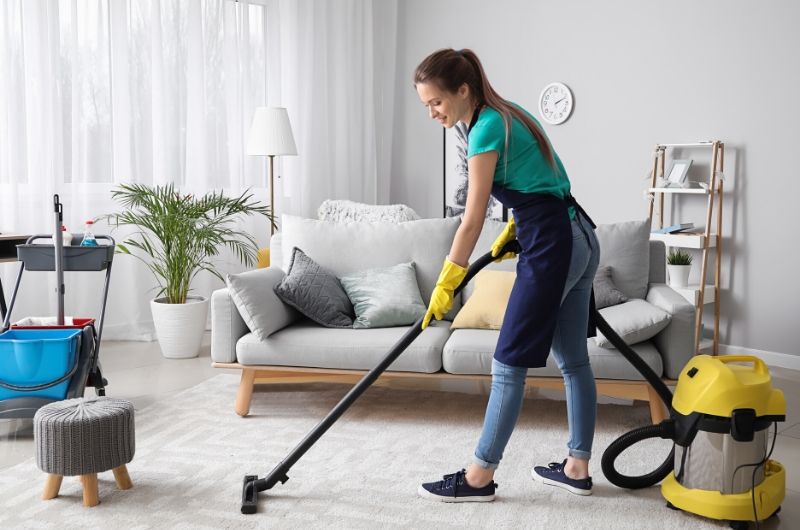Maintenance Issues Tenants Are Responsible For

Landlords have duties to maintain clean, safe properties with functional utilities and appliances. But once a tenant takes up occupancy, there are maintenance issues tenants are responsible for.
Keeping the Home Clean
While the landlord may provide waste hauling services, the tenant has to take out their trash. Tenants are also responsible for keeping walls, kitchens, and bathrooms free from dirt, grease, or soap scum buildup. They must also take steps to prevent mold by using available bathroom and kitchen fans and ventilation and not leaving damp laundry piles all over the place.
Pest Control
After the landlord prepares the unit for occupancy by addressing any existing pest issues and making repairs that keep rodents out, the tenant who moves in becomes responsible for maintaining the home in a way that discourages pests from taking up residence with them. While landlords can’t require tenants to maintain spotless homes entirely free from normal wear and tear, they can reasonably expect common-sense measures. This includes things like sweeping and vacuuming, putting food away, and generally maintaining a sanitary environment.
Using Appliances Correctly
While landlords may be responsible for routine maintenance, appliance failure due to tenant abuse is on the tenant. Overloading (or underloading) a washing machine, failing to clean the microwave or the dryer lint screen, or using stoves and ovens improperly could all result in damage that the tenant must remedy.
Landscaping and Snow Removal
The lease will spell out who does this, but it’s most likely the tenant’s job in a single-family home rental. The tenant is on the spot when the snow falls and the ice forms, and many city codes require timely snow removal from walkways in front of the home.
Prompt Communication When There Are Problems
If a tenant’s failure to promptly report problems like leaks or slow drains, faulty electrical outlets, or difficult air conditioning systems causes damage that could have been prevented with earlier notice, the tenant may be liable.
Unauthorized Modifications
Generally, tenants are responsible for fixing things (or paying for fixing things) they break beyond normal wear and tear. If a tenant knocks out walls or removes fixtures, or paints the unit without permission, they may be responsible for the costs of the damage to the property, to put it back to its original condition when they moved in. Reckless and negligent uses, such as overloading electrical circuits, misuse of stoves, allowing too many people to live in the unit, or blocking emergency exits are all things a tenant should avoid or immediately correct. Otherwise, they risk the cost of repair which could include smoke, fire, water, sewer, or septic damage.
Landlords who own multiple properties can benefit from using a property management company to conduct inspections with proper notice, work with tenants to remedy problems, or in extreme cases, manage evictions. Remember, this article is intended as general information only. The rules and practices in your location may be specific to your state, county or city. Consult your lawyer for specifics on maintenance issues tenants are responsible for in your property’s location. In Atlanta, Excalibur Homes offers comprehensive property management services, including dealing with maintenance issues.



